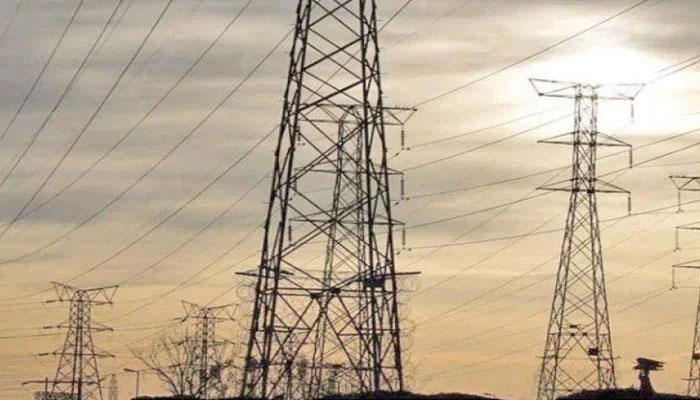Economy with sustainable growth not possible without reformed energy sector
Pakistan badly needs to reform the energy sector which has now virtually become unsustainable and unviable with annual theft of electricity of Rs589 billion
ISLAMABAD: Pakistan’s economy cannot be put on a sustainable growth trajectory unless the energy sector is revamped and reformed with a hallmark of massive gains through efficiency coupled with changing the mode of the import-led economy to the export-led economy.
For the export-led economy, Pakistanis need to turn themselves into a manufacturing nation.
Pakistan badly needs to reform the energy sector which has now virtually become unsustainable and unviable with annual theft of electricity of Rs589 billion, 87 percent of recovery of electricity bills, circular debt of Rs2.6 billion and, the increasing inability to pay the dues to the IPPs and CPEC IPPs as well.
This has virtually kept foreign investors away from investing more in the power sector.
The government owes Chinese IPPs $1.68 billion which is why the Chinese SINOSURE is not allowing more investment in the $10 billion Green Refinery and 300MW Gwadar power project in the country.
The monster of the capacity payments will be more frightening as it will increase from Rs1.9 trillion to Rs2.278 trillion in next fiscal and this is how the contribution of capacity payment in the tariff would escalate to Rs17.42 from Rs14.09 per unit.
The base tariff for the financial year 2024-25 may surge to Rs36.28 per unit at the maximum from the existing base tariff Rs29.78 which was at Rs24.82 per unit in 2022-23 in case distribution margin and prior year adjustments are added and the end consumer tariff during peak hours for domestic consumers will go up to Rs48.51 per unit from over Rs42 per unit if the admissible losses of 11 percent of DISCOs, surcharges, taxes and duties are added up in the bills.
And if we look at the circular debt in the gas sector that now peaked Rs2.9 trillion which is more alarming than that of the power sector. The Exploration & Production (E&P) companies ---OGDCL, PPL, GHPL, MOL and, Mari Gas are braving the severe liquidity crisis as Sui gas companies — Sui Southern and Sui Northern are needed to pay them Rs1500 billion.
In the head of RLNG, the volume of the circled debt has also swelled to an unimaginable level. Pakistan State Oil (PSO) owes Sui Northern over Rs550
billion and Pakistan LNG Limited (PLL) is also required to be paid Rs90-100 billion.
The unrecovered RLNG diversion cost starting from financial year19 to FY22 has accumulated to a whopping figure of Rs260 billion for which the IMF has not allowed the Finance Ministry to extend the next year budgetary allocation of subsidy.
The industrial and high-end consumers are extending the cross-subsidy of Rs110 billion to the protected and some unprotected gas consumers. In the power sector, the industrial sector is providing the cross-subsidy of Rs240 billion to lifeline and some domestic consumers.
The government can reduce the industrial tariff at regionally competitive energy tariff (RECT) to stimulate the exports of the country to a large extent on a sustainable basis if the sitting regime shows political will by withdrawing the cross-subsidy that the industrial sector is extending in both power and gas sectors.
Under this scenario, the government will have to increase the gas tariffs of protected and some non-protected consumers and hike the power tariff of lifeline and some more consumers using up to 300 units a month or it will have to arrange the social safety nets to the said consumers.
Changing the board of directors of DISCOs is not the solution towards reforms as every government in the name of reforms changes the BoDs of the DISCOs and NTDC apparently to adjust their own loved ones.
The real issue is to give financial autonomy to the DISCOs boards and allow them to make and implement their business plans.
The baboos in the power division still keep running the DISCOs, NPCC, CPPA and NTDC and want to keep their unjustified influence in the DISCOs affairs.
So running the DISCOs from the power division has served nothing rather it inflicted huge injury on the power sector.
Though this regime is trying to privatize FESCO, GEPCO, IESCO, LESCO and MEPCO and hand over HESCO, SEPCO, QUESCO and PESCO to private management on long term concessions, still it is a Herculean task as the power sector is no longer a sustainable sector.
During the caretaker regime, CCI (Council of Common Interest) had allowed E&P companies to directly sell to the private sector companies 35 percent gas from future gas fields to improve the liquidity crisis of the exploration and production firms but subject to approval of implementation framework from ECNEC (executive committee of national economic council). Four months and twelve days have passed, but the petroleum division has not yet submitted the implementation framework with ECNEC for approval.
So the unnecessary delay to this effect has also irked the SIFC (Special Investment Facilitation Council) as the said initiative was approved by CCI with the backing of SIFC.
In the last executive committee of the SIFC meeting, the petroleum minister and his secretary were not on one page on this particular issue as the petroleum minister was not satisfied with the CCI decision, but the secretary said it was the right one and should be implemented as soon as possible. This bickering between the secretary petroleum and his minister annoyed the SIFC meeting participants.
The other issue is the signing of the implementation agreements (IAs) between OGRA and refineries to ensure the production of Euro-V petrol and diesel which is more environment friendly and reduction in furnace oil production to the minimum level, but this issue has delayed as petroleum division has sought the 6 months extension from CCoE (cabinet committee on Energy) in signing IAs to rope in PARCO and Cenergyco as part of the upgradation policy. However, the three refineries --- ARL. NRL and PRL are quite ready to sign IAs. PARCO may complete feasibility within 6 months’ time to assess which kind of upgrade project should be initiated among i) clean project of $500 million, ii) bottom of barrel project of $1.75 billion or iii) the project in between of both valuing $1.2 billion.
The sitting regime also needs to open up the LNG import sector to private companies which can have the ability to import LNG at lower prices than the government entities.
This would help bring down the average price of RLNG to a reasonable level. The import of LPG by Sui Southern is highly questionable in the presence of JJVL LPG extraction plant which is non-operational since June 2020 and it can be used as an LPG import substitution project saving foreign exchange reserves that have been borrowed from friendly countries.
And last but not least, the government authorities should immortally remove all hurdles in the way of implementing the TPA rules (third party access rules) in the oil and gas sector.
The reforms are the only recipe to harness efficiency gains in the energy sector which can play role in slicing down the energy tariffs to an affordable.
-
 WhatsApp Rolls Out Group Message History To Ease Group Chats
WhatsApp Rolls Out Group Message History To Ease Group Chats -
 Tesla Expands Cybertruck Lineup With Affordable Model In US, Slashes Cyberbeast Price To Boost Demand
Tesla Expands Cybertruck Lineup With Affordable Model In US, Slashes Cyberbeast Price To Boost Demand -
 AI Is Not As Powerful As We Think, Says Mathematician Hannah Fry
AI Is Not As Powerful As We Think, Says Mathematician Hannah Fry -
 How Andrew's Feeling Since His Arrest & Subsequent Release Amid Tech & Computers Seize
How Andrew's Feeling Since His Arrest & Subsequent Release Amid Tech & Computers Seize -
 Trump Officially Directs US Agencies To Identify And Release Files On Extraterrestrial Life
Trump Officially Directs US Agencies To Identify And Release Files On Extraterrestrial Life -
 2026 Winter Olympics: Alysa Liu Claims Gold, Snapping 20-year Drought For US Figure Skating
2026 Winter Olympics: Alysa Liu Claims Gold, Snapping 20-year Drought For US Figure Skating -
 Hilary Duff Opens Up About Marriage Fears Despite Strong Bond With Matthew Koma
Hilary Duff Opens Up About Marriage Fears Despite Strong Bond With Matthew Koma -
 ‘Grey’s Anatomy’ Star Eric Dane Breathes His Last At 53
‘Grey’s Anatomy’ Star Eric Dane Breathes His Last At 53 -
 Donald Trump Breaks Silence On Andrew’s Arrest: ‘It’s A Shame’
Donald Trump Breaks Silence On Andrew’s Arrest: ‘It’s A Shame’ -
 DJ Khaled Shares Weight Loss Progress
DJ Khaled Shares Weight Loss Progress -
 Jennifer Aniston And Jim Curtis Share How They Handle Relationship Conflicts
Jennifer Aniston And Jim Curtis Share How They Handle Relationship Conflicts -
 Shamed Andrew Real Birthday Plans As Cops Showed Up At Door
Shamed Andrew Real Birthday Plans As Cops Showed Up At Door -
 Pete Davidson’s Girlfriend Elsie Hewitt Says 'everything Hurts' After Sudden Medical Emergency
Pete Davidson’s Girlfriend Elsie Hewitt Says 'everything Hurts' After Sudden Medical Emergency -
 Princess Beatrice 17 Holidays Per Year Exposed Amid Andrew Arrest
Princess Beatrice 17 Holidays Per Year Exposed Amid Andrew Arrest -
 Who Is 'Queen Of Woke'? UK First Female Civil Head
Who Is 'Queen Of Woke'? UK First Female Civil Head -
 Dwayne Johnson Confesses What Secretly Scares Him More Than Fame
Dwayne Johnson Confesses What Secretly Scares Him More Than Fame




